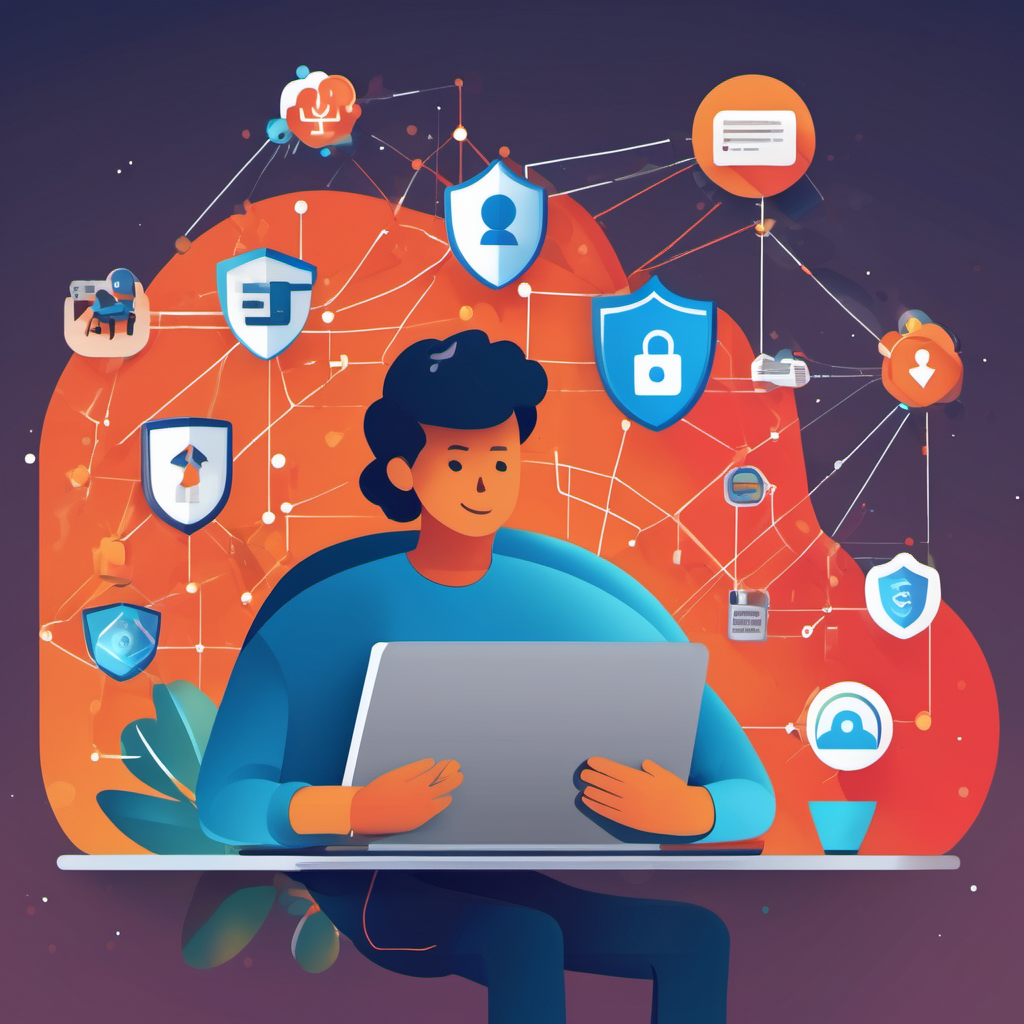In today's digital age, cybersecurity has become more critical than ever. With the rise of remote work, especially following the COVID-19 pandemic, the risk of cyber attacks has significantly increased. In this blog, we'll discuss essential cybersecurity measures you can take to protect your data and sensitive information while working from home.
Enable automatic updates for your operating system, antivirus software, and all other applications.
Regularly check for updates manually, especially for software that doesn't update automatically.
Look for a reputable VPN provider with strong encryption standards.
Ensure the VPN does not log your activities.
Use the VPN consistently, especially when accessing public Wi-Fi networks.
Avoid clicking on links or downloading attachments from unknown or suspicious emails.
Verify the sender's email address and look for any signs of impersonation.
Use email security tools that provide an additional layer of protection against phishing attempts.
Change the default username and password of your router.
Use WPA3 encryption for your Wi-Fi network.
Regularly update your router's firmware.
Disable remote management features that you do not use.
Use both cloud-based and physical backups (like an external hard drive).
Schedule regular backups to ensure all new data is saved.
Encrypt your backups for added security.
Conduct regular cybersecurity training sessions.
Stay informed about the latest cyber threats and protection techniques.
Encourage good cybersecurity habits, such as logging out of accounts when not in use.
Cybersecurity is an ongoing process that requires vigilance and proactive measures. By following these tips, you can significantly enhance your security posture while working from home. Remember, in the world of cybersecurity, a little precaution goes a long way in protecting your digital life. Stay safe and secure!
#Cybersecurity, #RemoteWork, #OnlineSafety, #DataProtection, #StrongPasswords, #TwoFactorAuthentication, #VPN, #SoftwareUpdate, #PhishingProtection, #DataBackup, #HomeNetworkSecurity, #CyberAwareness, #StaySafeOnline, #DigitalSecurity, #TechTips
1. Use Strong Passwords
Why is it important?
Strong passwords are the first line of defense against unauthorized access to your online accounts.How to create them?
Length: Ensure your password is at least 12 characters long. Complexity: Use a mix of uppercase letters, lowercase letters, numbers, and special characters. Uniqueness: Avoid using the same password for multiple accounts. Password Manager: Consider using a password manager to generate and store complex passwords securely.2. Enable Two-Factor Authentication (2FA)
Why is it important?
Two-Factor Authentication adds an extra layer of security by requiring not just a password but also a second form of verification, such as a code sent to your phone.How to set it up?
Enable 2FA on all your important accounts, such as email, banking, and social media. Use authentication apps like Google Authenticator or Authy for added security.3. Keep Your Software Updated
Why is it important?
Software updates often include security patches for vulnerabilities that cybercriminals can exploit.How to keep it updated?
4. Use a VPN
Why is it important?
A Virtual Private Network (VPN) encrypts your internet connection, making it difficult for hackers to intercept your data.How to choose a VPN?
5. Be Cautious with Emails and Links
Why is it important?
Phishing attacks, where cybercriminals trick you into revealing personal information, are common and can be highly deceptive.How to stay safe?
6. Secure Your Home Network
Why is it important?
Your home network is the gateway to your devices and data, and securing it can prevent unauthorized access.How to secure it?
7. Backup Your Data Regularly
Why is it important?
In case of a ransomware attack or data breach, having a backup ensures you don't lose critical information. How to backup your data?8. Educate Yourself and Your Family
Why is it important?
Cybersecurity is not just an individual responsibility; everyone in your household should be aware of best practices.How to educate?
Cybersecurity is an ongoing process that requires vigilance and proactive measures. By following these tips, you can significantly enhance your security posture while working from home. Remember, in the world of cybersecurity, a little precaution goes a long way in protecting your digital life. Stay safe and secure!
#Cybersecurity, #RemoteWork, #OnlineSafety, #DataProtection, #StrongPasswords, #TwoFactorAuthentication, #VPN, #SoftwareUpdate, #PhishingProtection, #DataBackup, #HomeNetworkSecurity, #CyberAwareness, #StaySafeOnline, #DigitalSecurity, #TechTips



0 comments